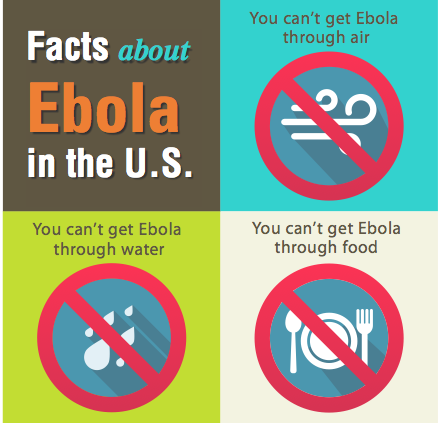In the last few months, Ebola has been on people’s minds especially those who are working to curb the spread of the virus and providing humanitarian relief to the millions of people that could be exposed in the three main countries: Sierra Leone, Liberia and Guinea.
$13.5 million from CERF is largest for single crisis http://t.co/Jo2fXlzgVL via @reliefweb @UNOCHA #EBOLA pic.twitter.com/Lo7mlUSlCy
— Vincent Fung (@vfung) October 3, 2014
At the same time, the media has gone in full overdrive on reporting on what’s been happening, where the disease is likely to spread, and who’s been responding. Thanks media for letting us know what’s going on, but what should we do with headlines and articles like this?
Ebola-infected nurse ‘followed regulations’, husband says
or this…
Don’t sacrifice our dog! Husband of Spanish nurse infected with Ebola attacks Madrid health chiefs for threatening to have their family pet put down
At the same time, the overwhelming amount of information about how Ebola is now spreading to the United States or in large parts of Europe in the near future also makes me wonder what’s all this suppose to do for the public.
For example, this recent news about how “High risk Ebola could reach France and UK by end-Oct” is good info to have but if the UK and France have a 15% and 25% chance of importing the virus by the end of the month, what should I do with this info other than get depressed about it? If a crazy and somewhat unstoppable virus is heading my way, and if every article focuses on how Armageddon might be coming, am I suppose to leave my home/city/country? Should I be scared of anyone that gets on the bus sneezing? Should I be telling the authorities to quarantine anyone who “looks” sick?
And when the media emphasize quotes like the one below, how is this actually helping the public?
“It’s really a lottery,” said Derek Gatherer of Britain’s Lancaster University, an expert in viruses who has been tracking the epidemic – the worst Ebola outbreak in history.
Aren’t lotteries normally a nice surprise? I’m not sure Ebola is a good thing unless this academic is hoping for a generous contribution to his research. Graphics like the one below from the US Centre for Disease Control can help ease any fears with simple language and illustration – could the media do more of this?
The media has a responsibility to report the news, but at the same time it shouldn’t make people feel helpless. Using scare tactics and focusing on the negatives might be great to sell newspapers, ad space, and TV time… Perhaps it’s now the time to focus on solutions and add value to help people do something (ex. preparedness or prevention) rather than just keep sharing news that may only cause hysteria and panic. This ScienceInsider article, “How to talk to the public about Ebola: Five tips from risk communication experts“, highlights that there’s still hope for the media to turn itself around by educating and teaching the public what the numbers mean and what will happen if action (or inaction) happens.
However, if the main role of journalism is only about content curation and aggregation of information, then maybe its time for the public step up and help each other find, share, and promote solutions.

